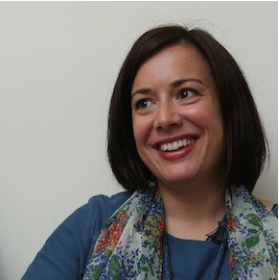In a paper recently published in the journal American Psychologist, Aurélie M. Athan, Lecturer in TC’s Department of Counseling & Clinical Psychology, presents a new concept, reproductive identity — a parallel of preexisting models of human identity such as race, gender, and sexuality — that she hopes educators, practitioners, researchers, and policymakers will use to “explore how individuals realize parenthood or non-parenthood, develop their reproductive identity, and integrate it into their overall sense of self.”
In the paper — titled “Reproductive Identity: An Emerging Concept” — Athan calls the decision of whether or not to become a parent “a developmental milestone in the adult life course” but notes that neither a terminology nor a focus on reproductive identity is commonplace.

NEW CONCEPT Athan's theory of reproductive identity parallels other theories of race and gender identity. (Photo: TC Archives)
“Significant demographic shifts in fertility and the social ideals of self-realization have impacted how reproduction is performed and families are structured, particularly for women and Lesbian, Gay, Bisexual, Transgender, Queer, Intersex and Asexual (LGBTQIA) communities,” Athan writes. “Like gender and sexuality, reproduction is a healthy aspect of human expression to be openly explored, destigmatized, and self-authored.” Her article reviews relevant identity development theories and propose a preliminary definition of reproductive identity, and considers its implications for research, education and counseling.
Reproductive identity formation is a major facet of theTeachers College Sex Education Initiative, directed by Athan and funded by New York City psychoanalyst and TC alumna Mary Edlow (M.A. ’67). The initiative, which prepares educators to teach sex education in schools, focuses on “the question of if, when and how someone wants to become a parent. That question parallels personal exploration of sexuality and gender and is increasingly a part of a comprehensive and inclusive sexual health education.
[Read more about the Teachers College Sex Education Initiative.]
